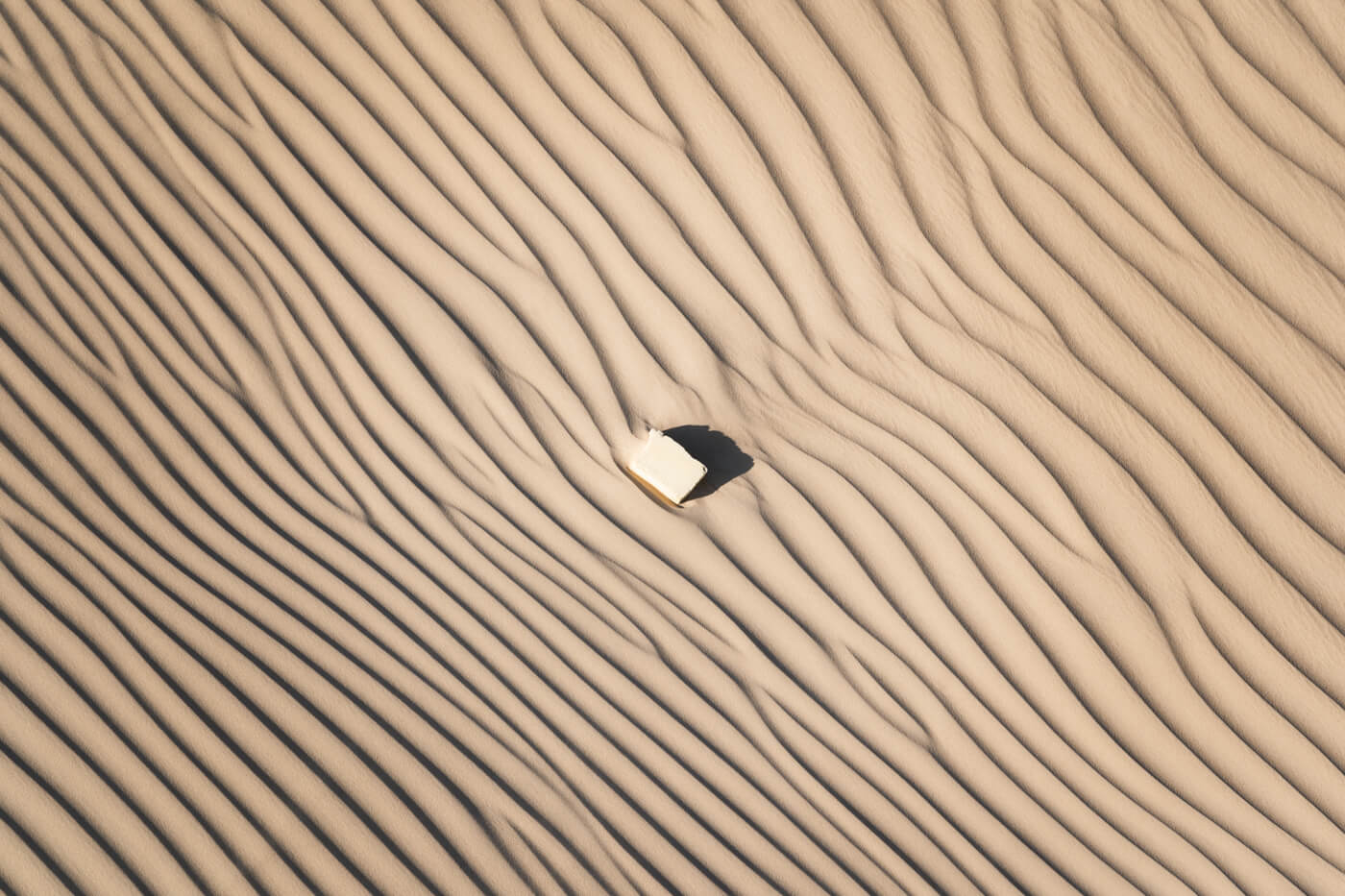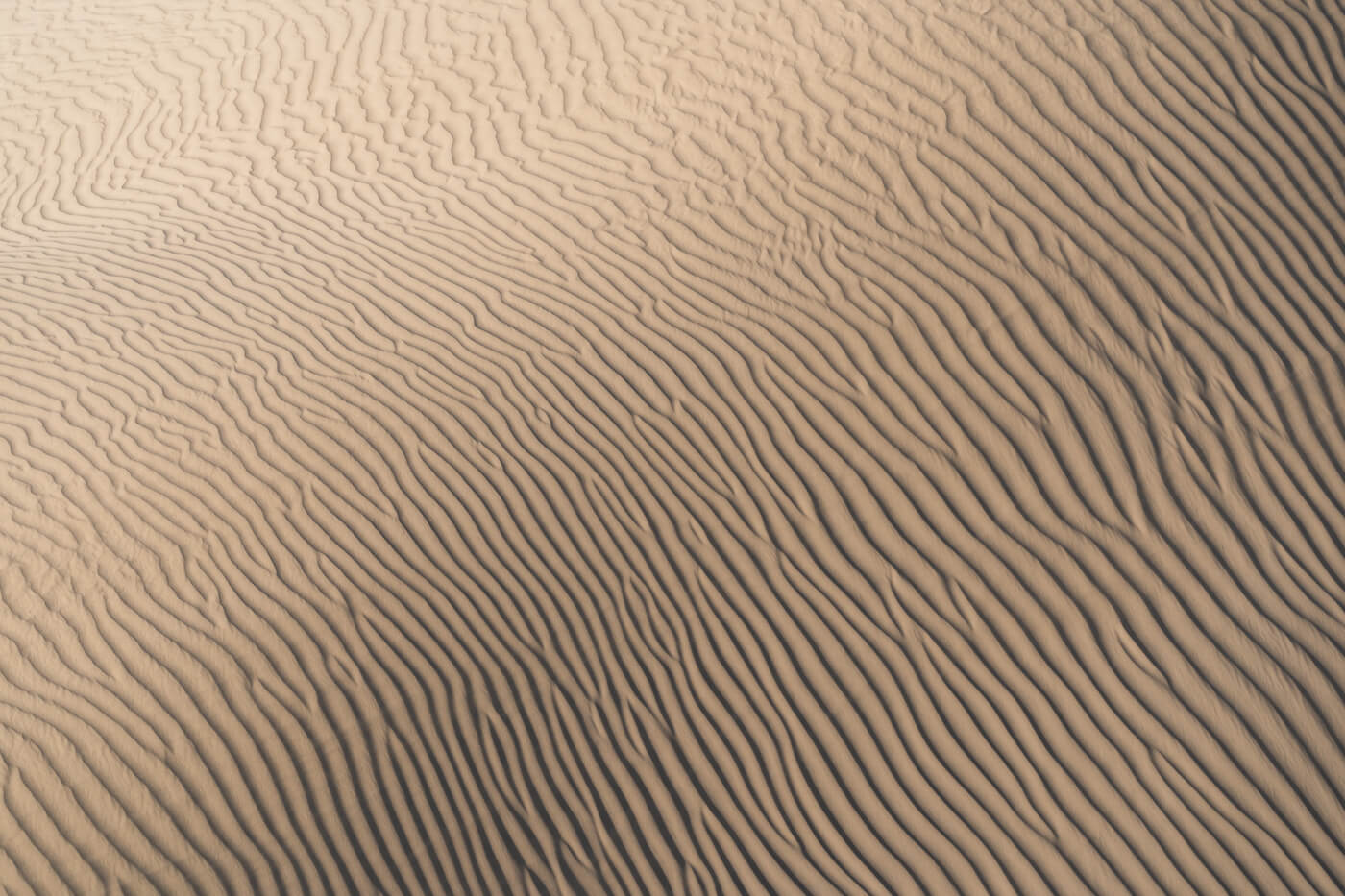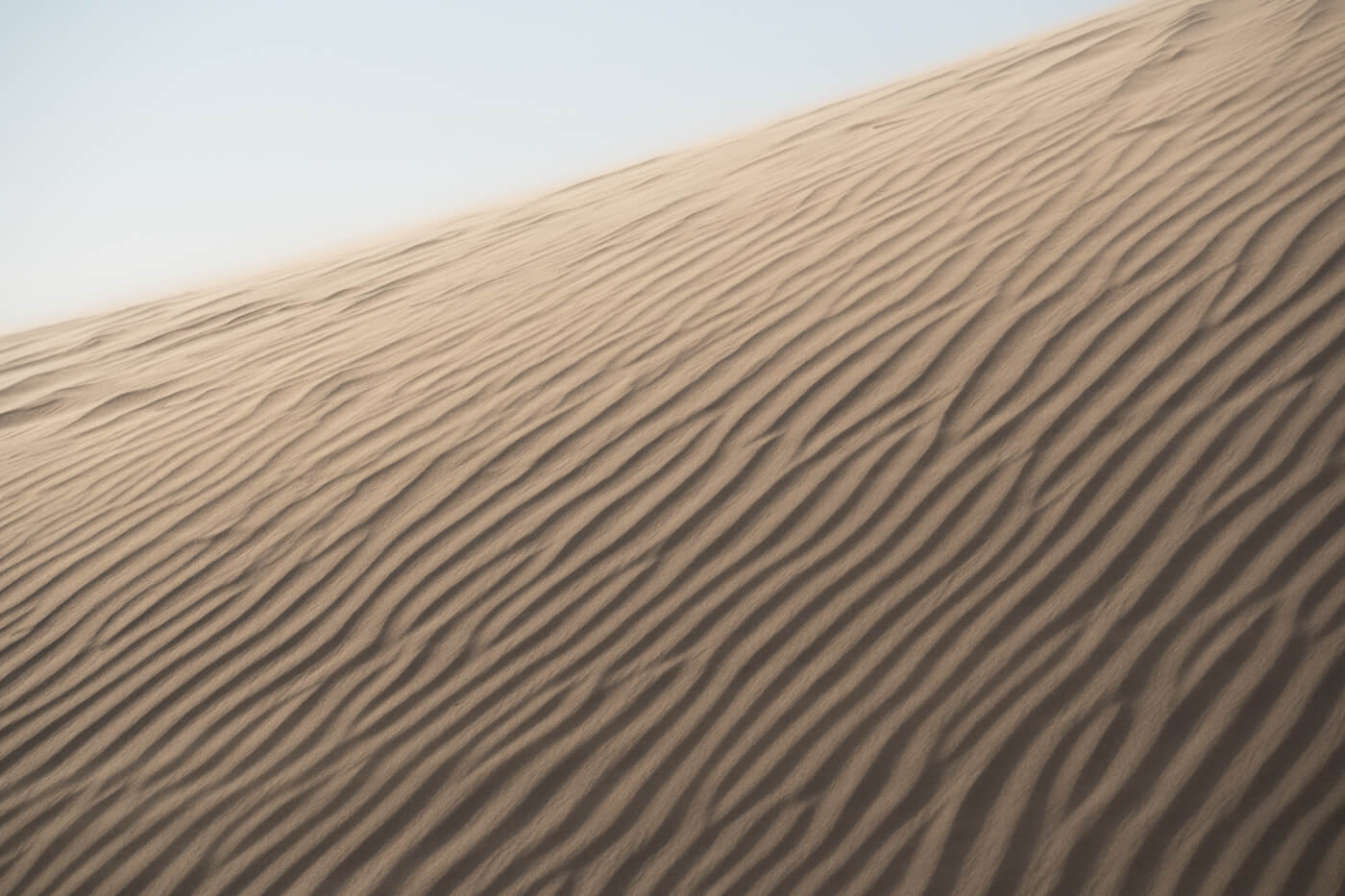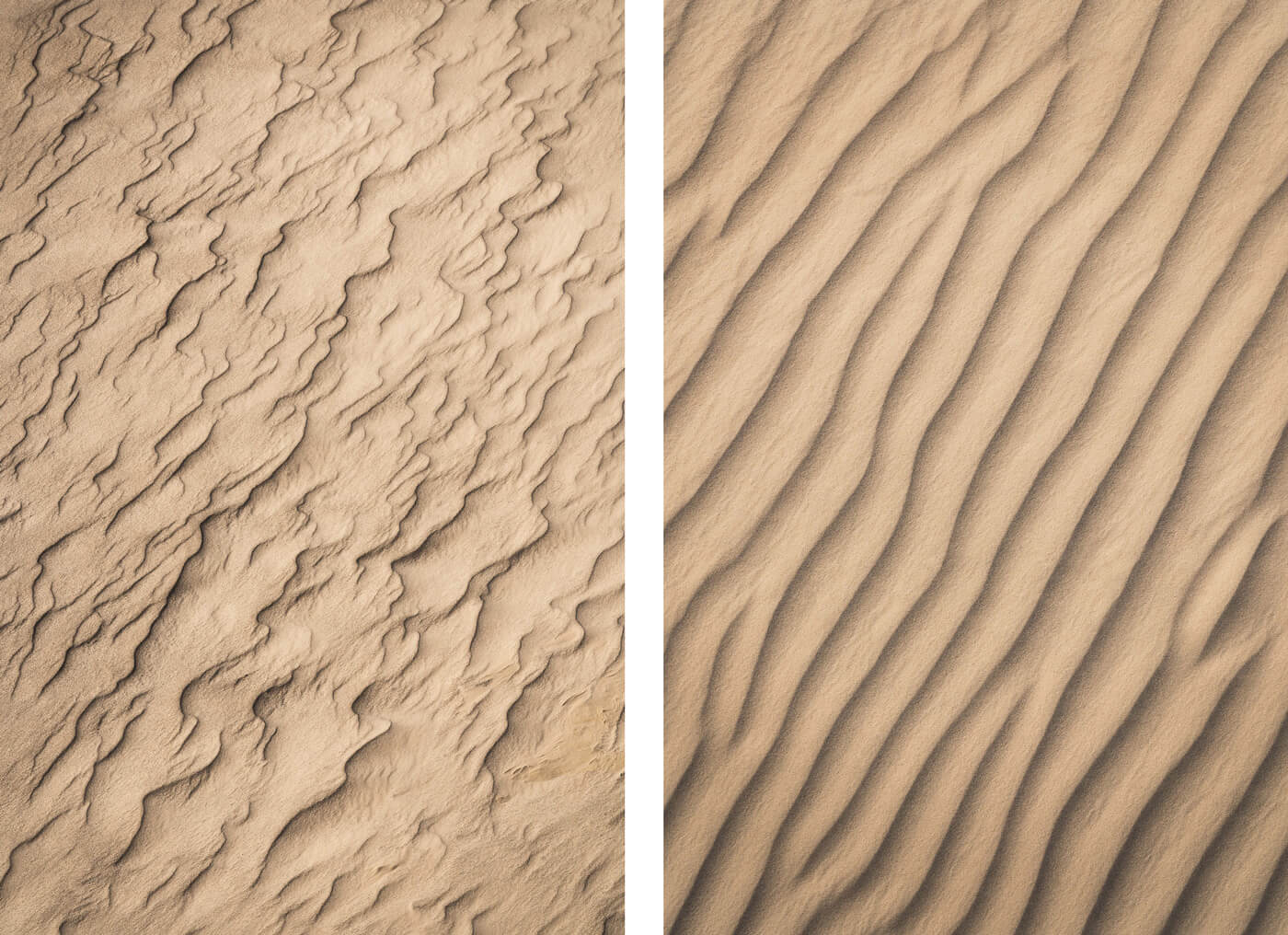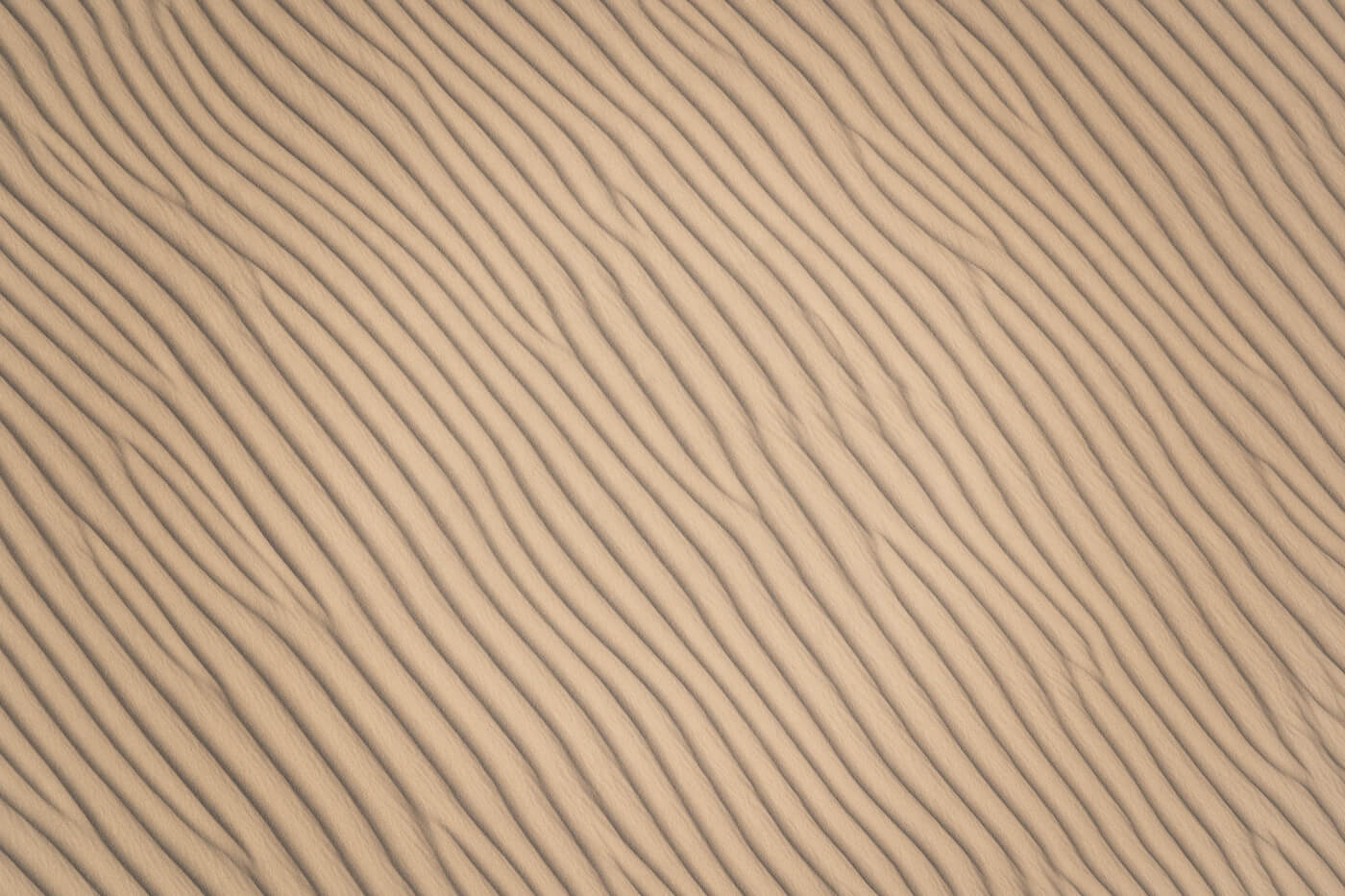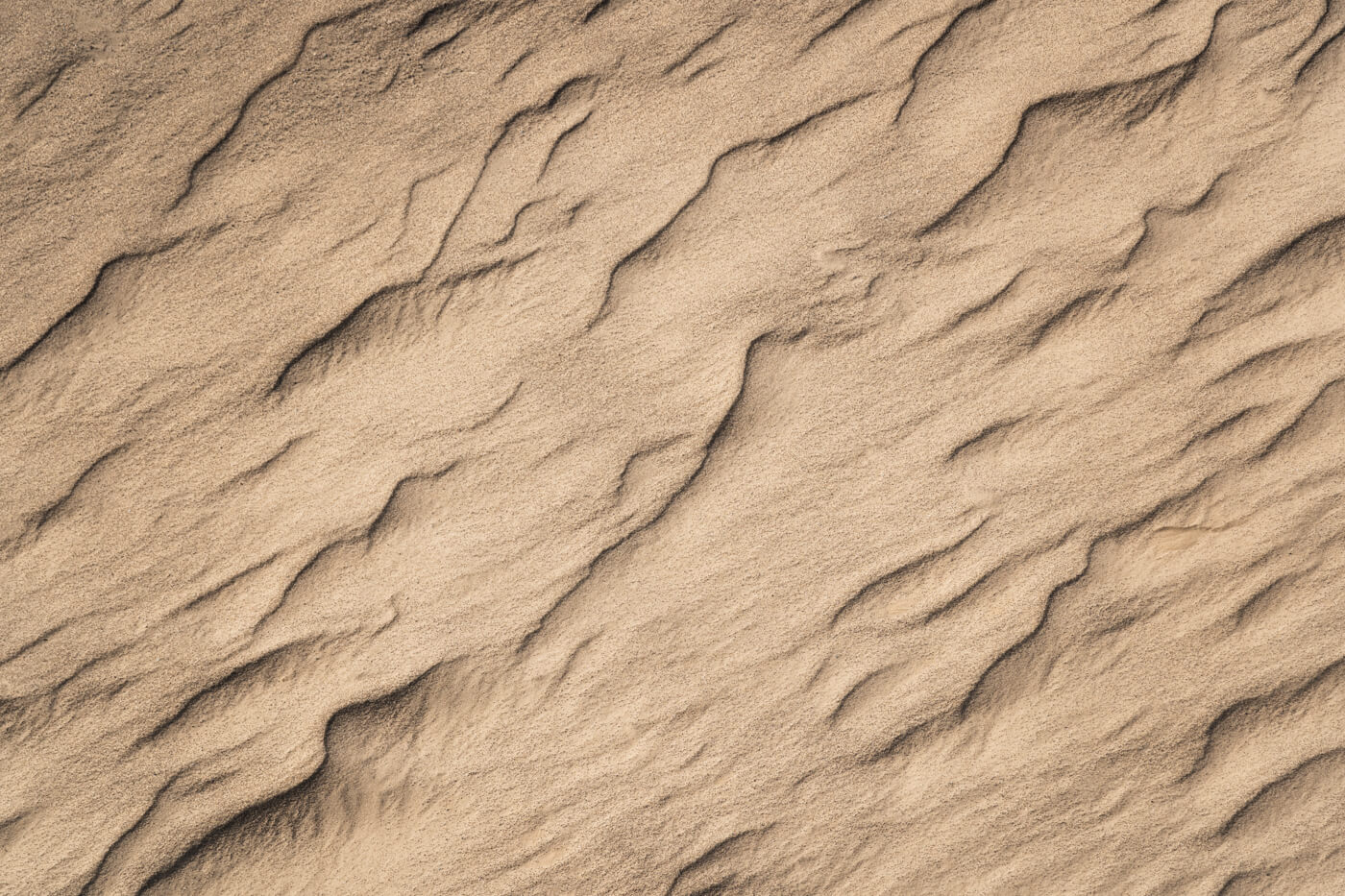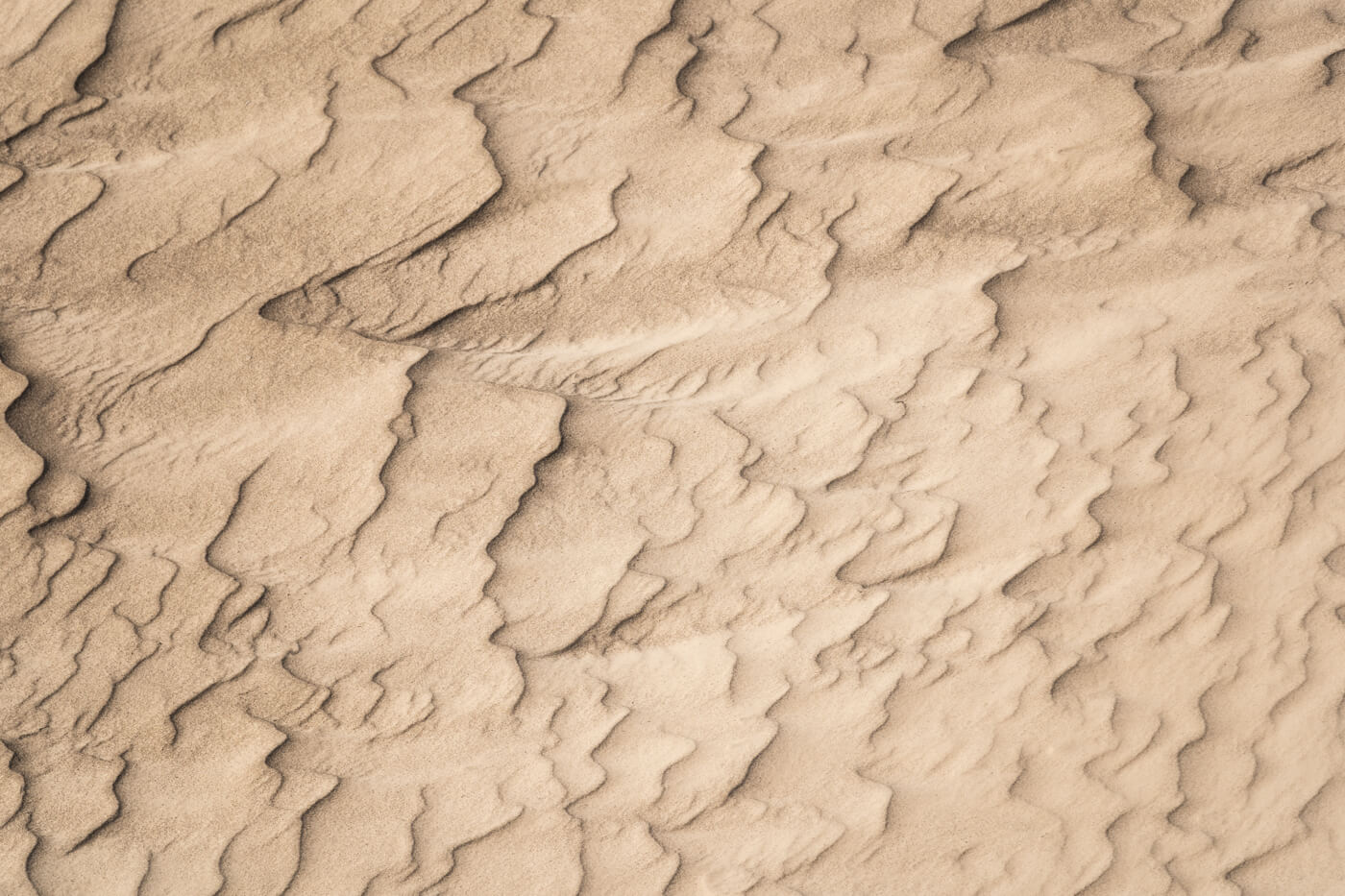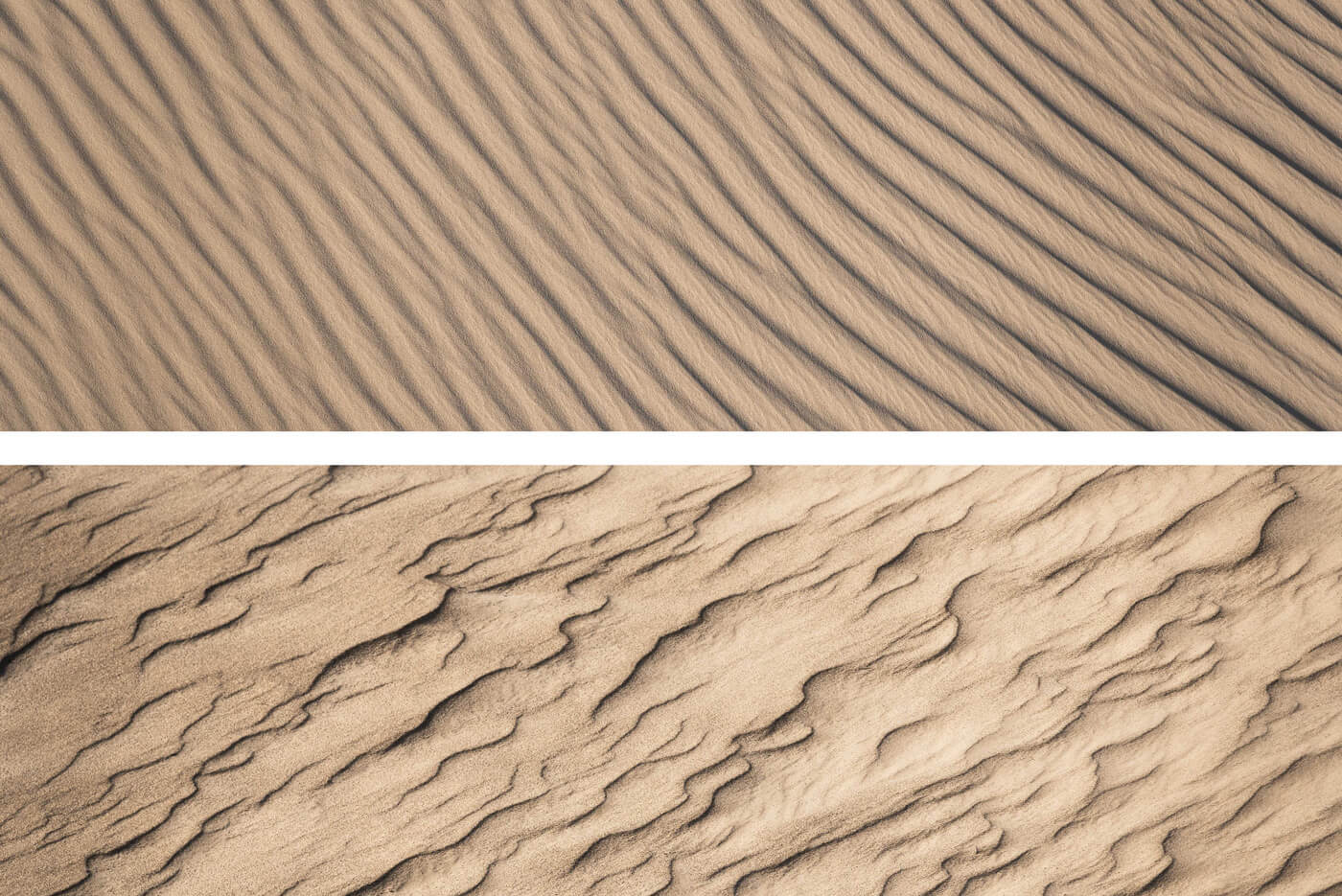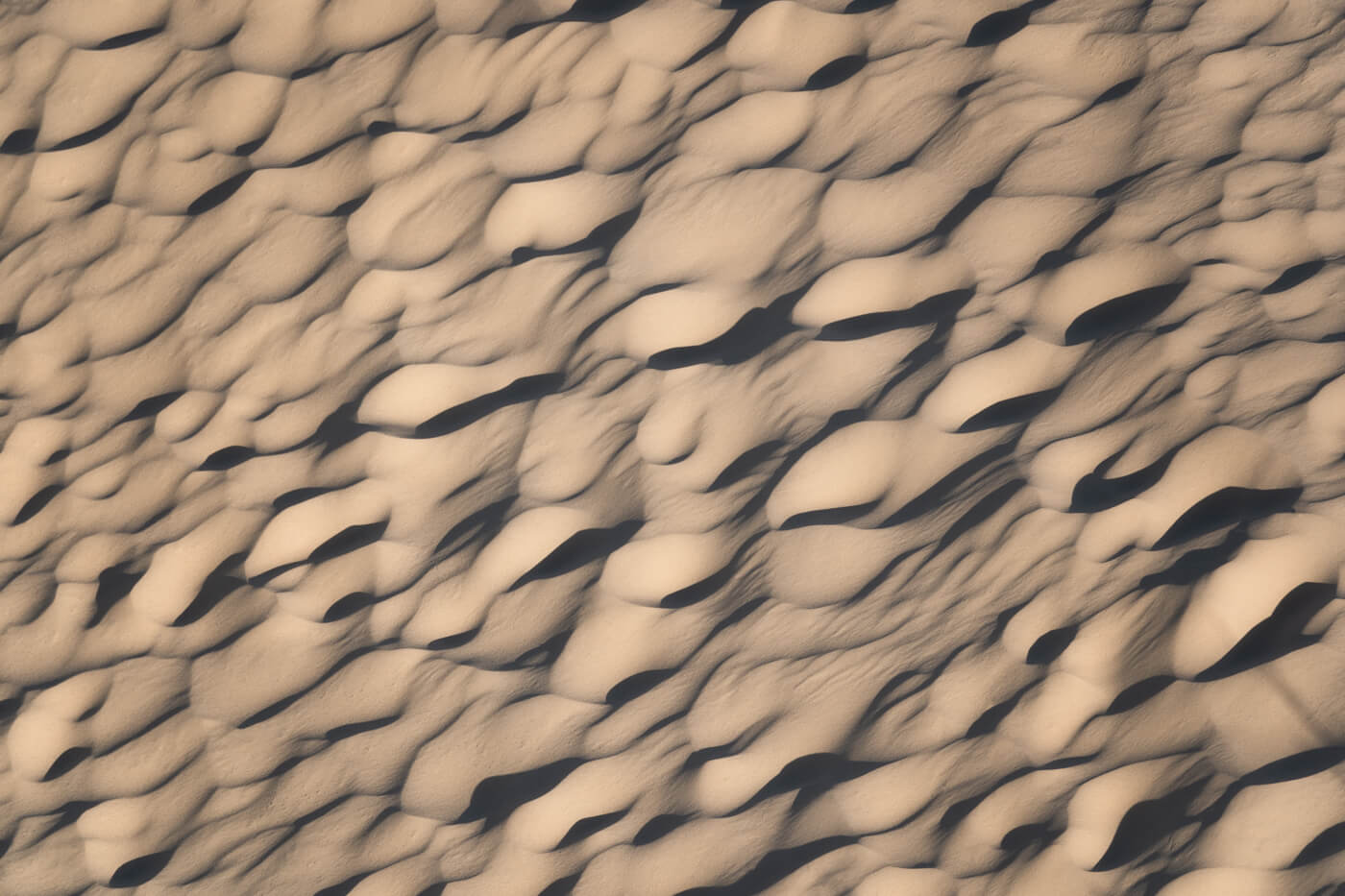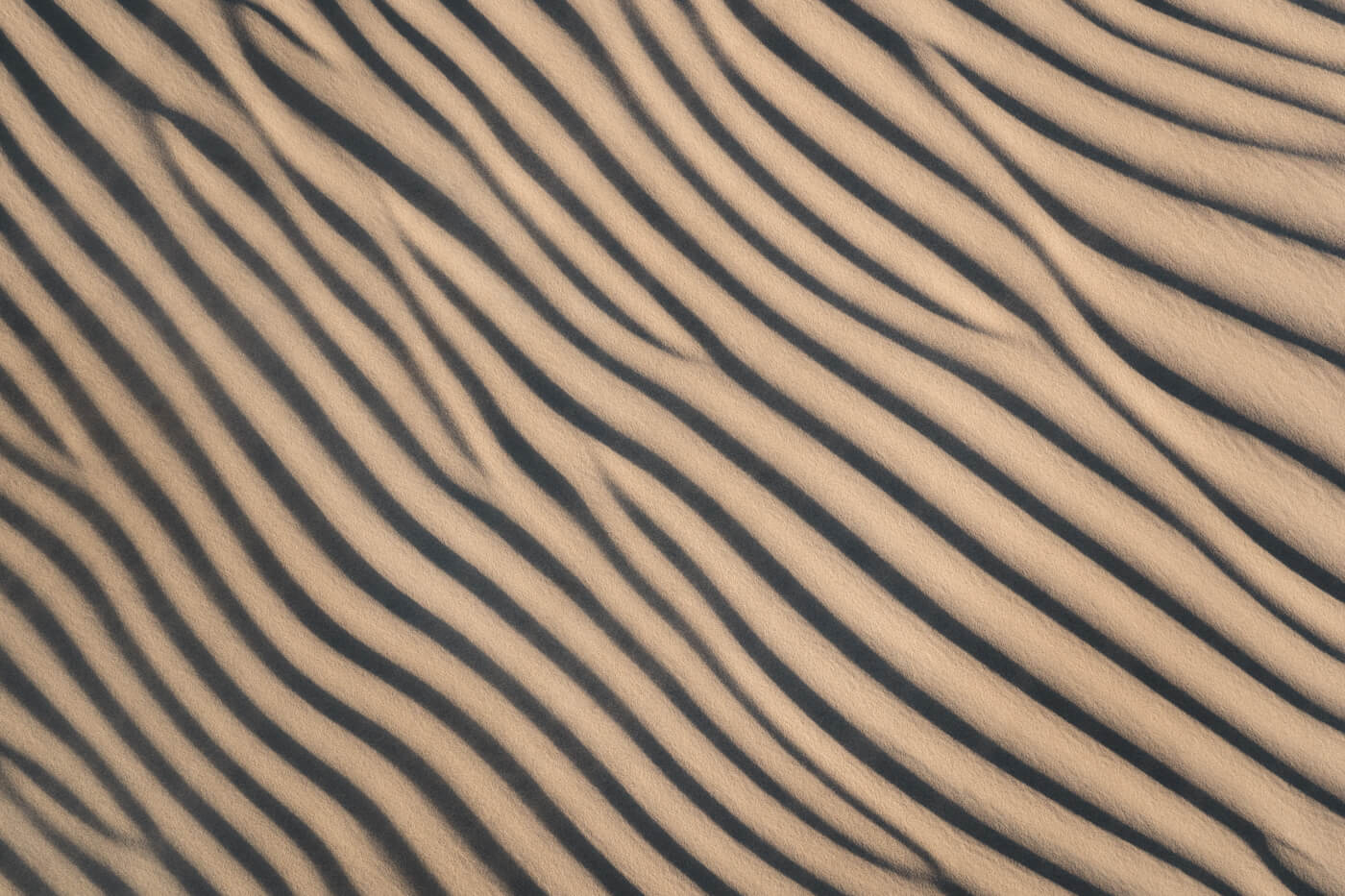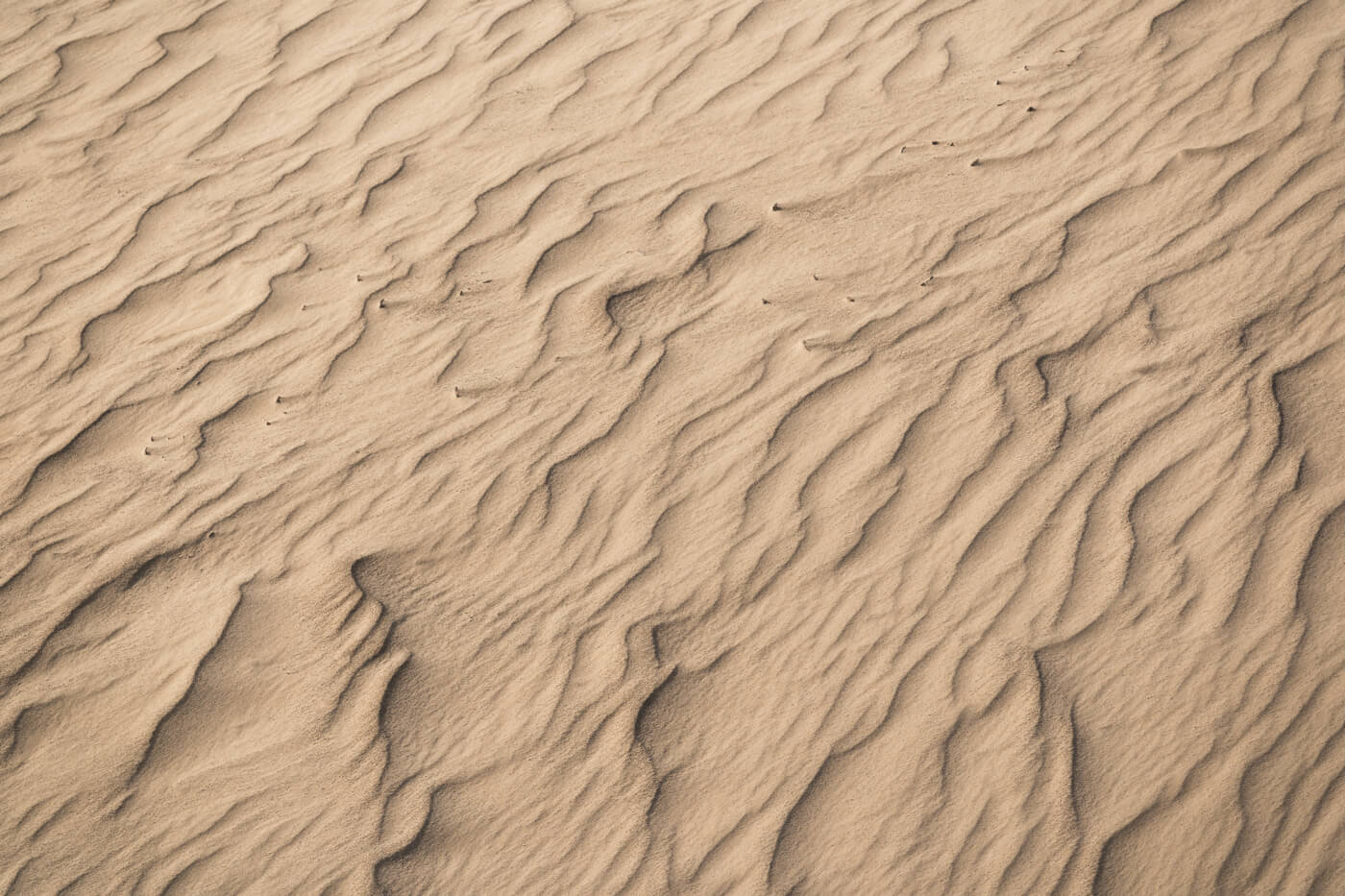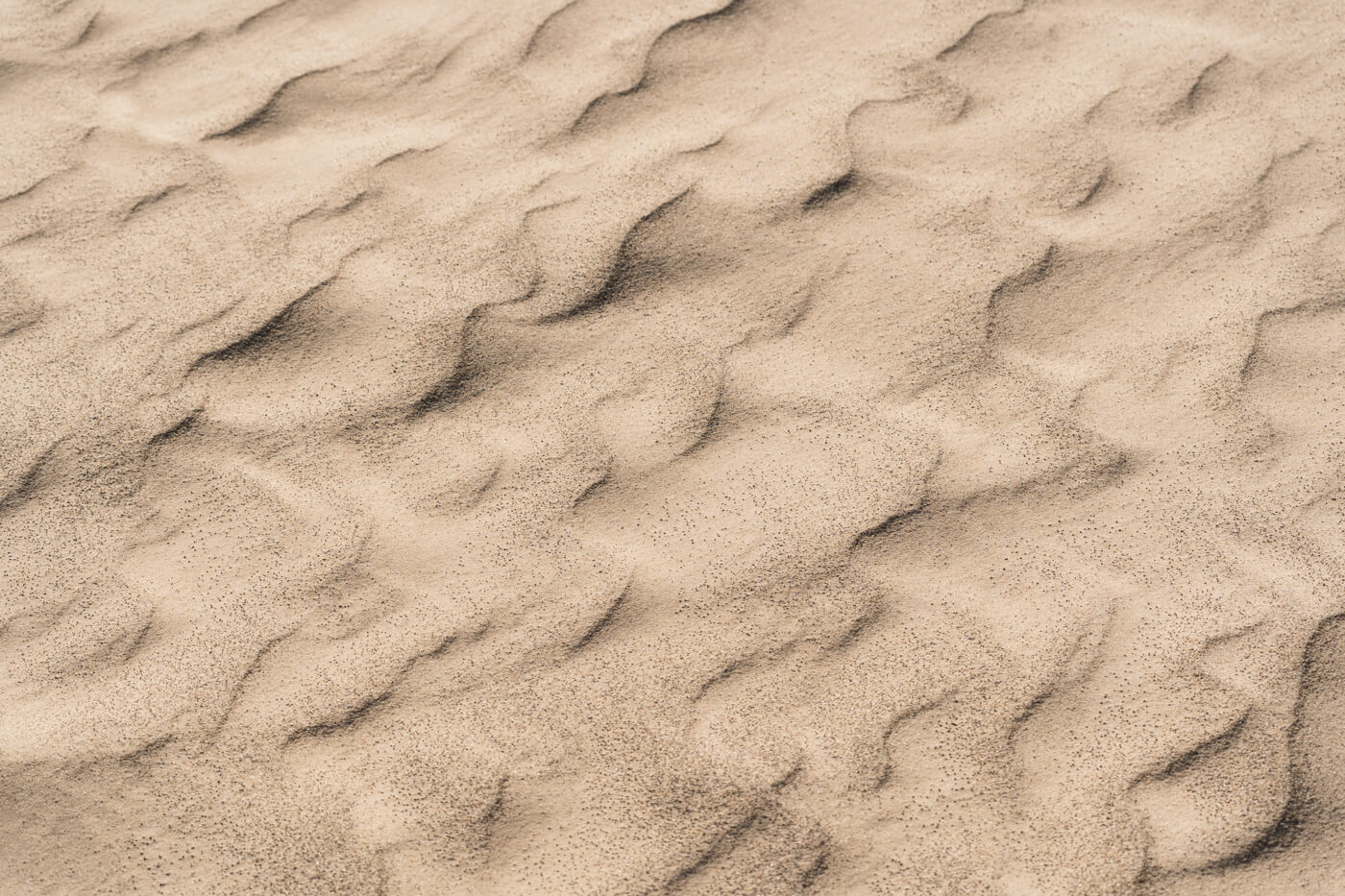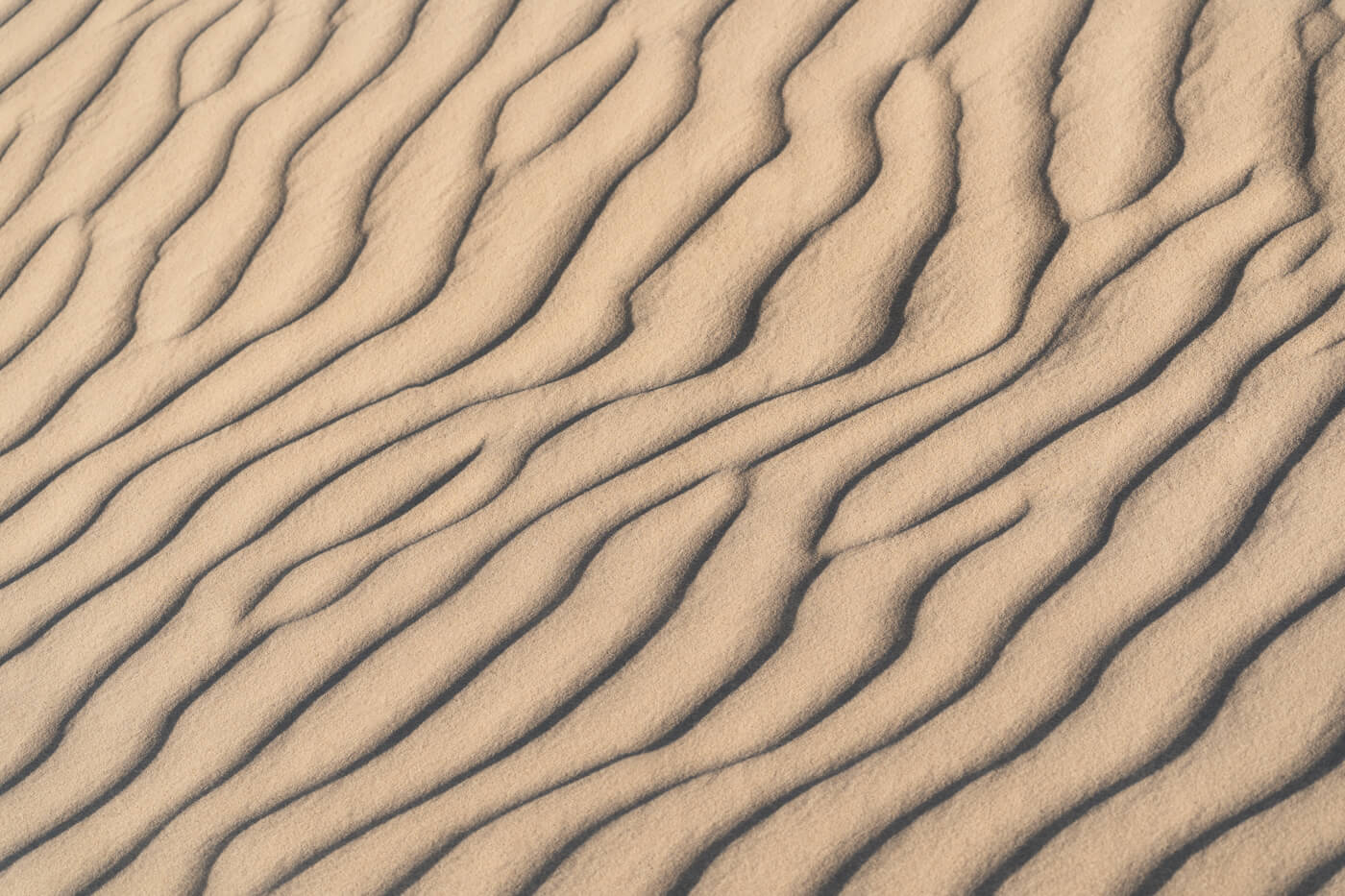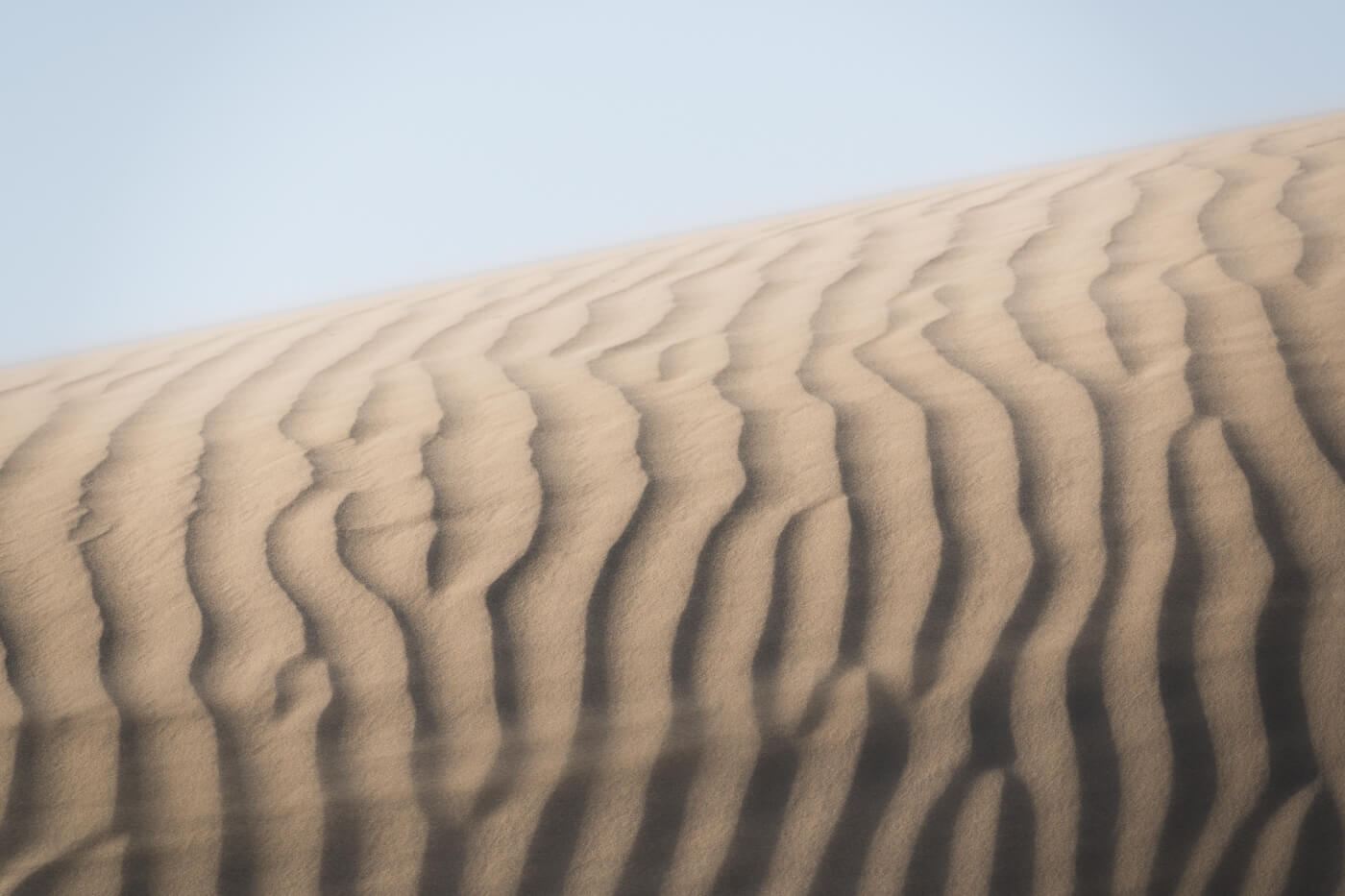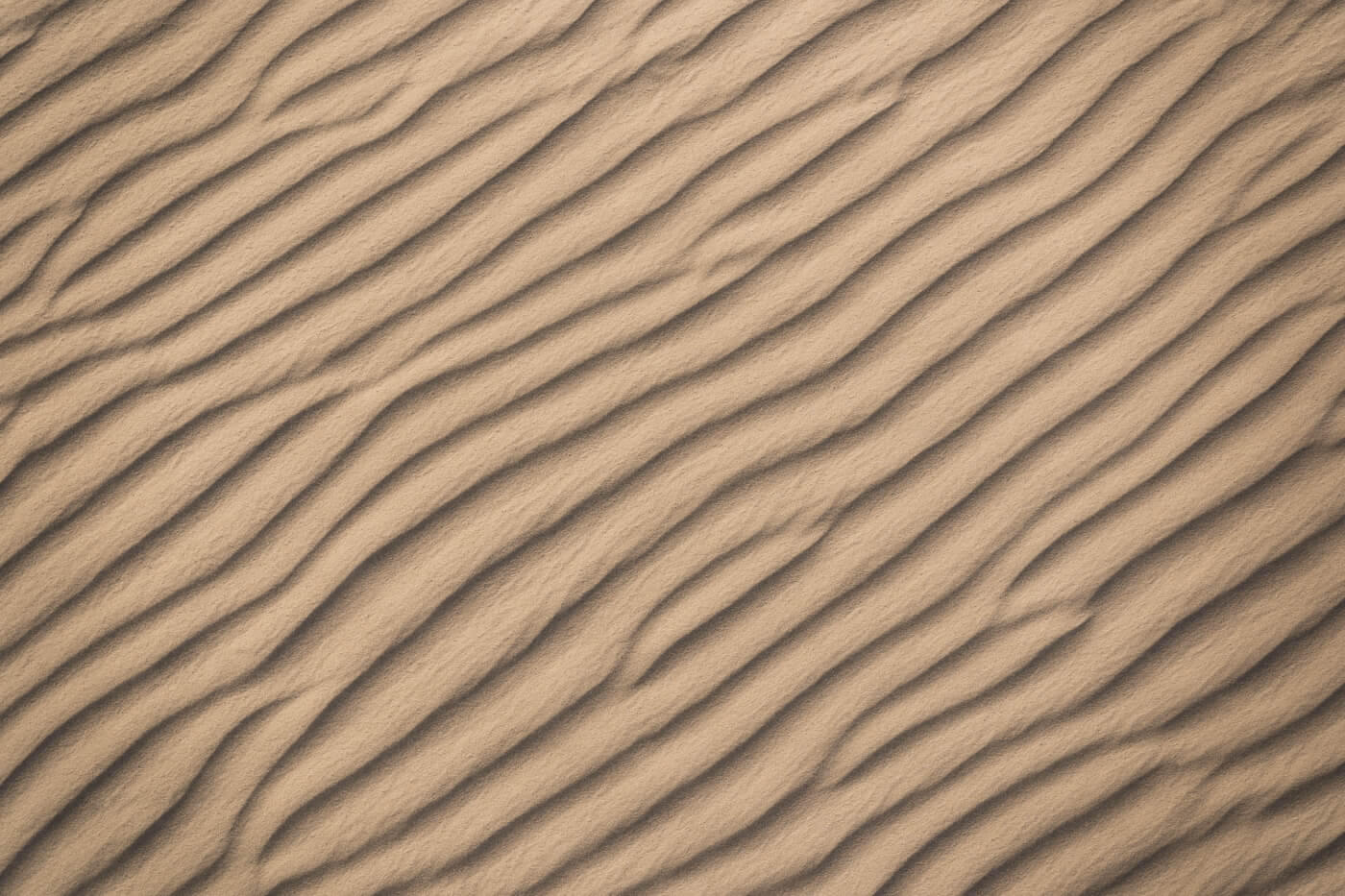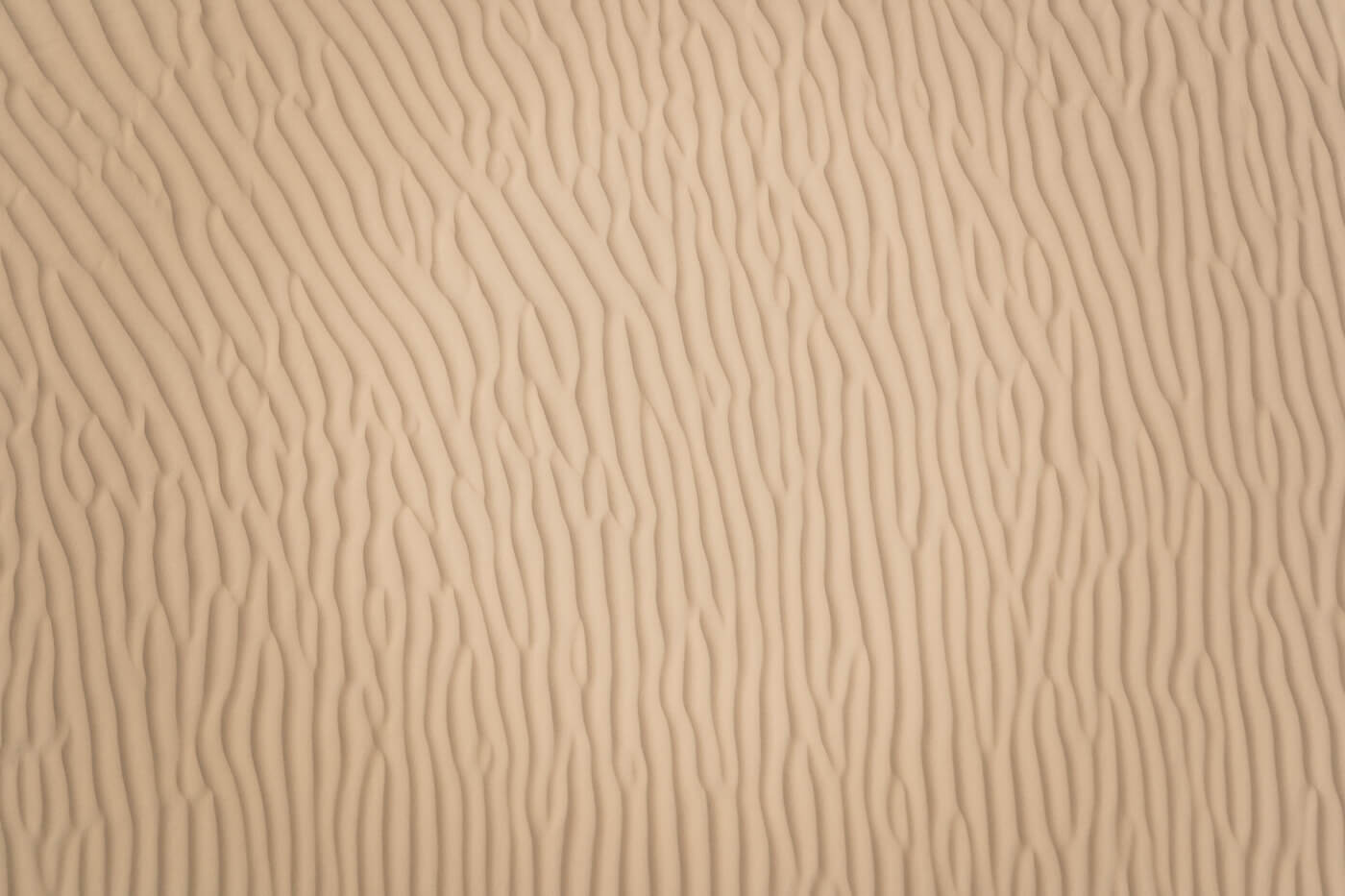Sculpted Lines
Extensive dune landscapes are a typical sight along the west coast of Denmark – in total 80,000 hectares of the Danish land mass are coastal dunes. These large sand depositions on the coastline have been created by glacial drift on the sea floor that has been moved eastwards across the surface by strong prevailing west winds.
One of the biggest drifting dunes in Europe is the ‘Rubjerg Knude’. It is located between Lønstrup and Løkken in the Jutland Region of Northern Denmark and extends over an area that is, at its peaks, 1.9 kilometers long and 400 meters wide.
Drifting dunes (also known as migrating dunes or moving dunes) are dynamic and ever-changing landscapes that are shaped by wind strength, sand availability and obstacles like vegetation or other dunes. It’s a continuous process of sand being eroded from the windward side and being moved to the leeward side. A slowly but steady move in the direction of the wind.
The wind, along with other forces like water and gravity, shapes the textural character of the sand dunes – a dance with the elements. Tiny particles transported by the wind across sandy landscapes, gently rearranged and scultped into ripples and wave-like shapes.
In an interplay between the dunes and the light, the natural artistry of sand unfolds. The undulating shapes and forms of the dunes are enhanced by the accentuating quality of the light – a captivating spectacle of shadows and highlights.
–
Denmark / 2023
Find this series on Behance

